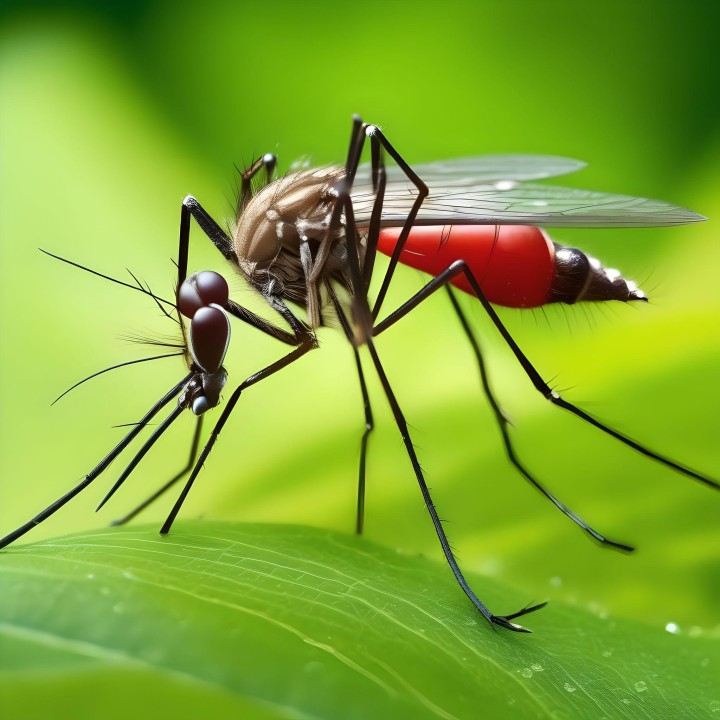
Nature's Symphony: Restoring Balance in our Mosquito Wars
Kochi, a vibrant city nestled on the Kerala coast, faces a familiar foe – the relentless mosquito. Dengue fever cases are on the rise, with Malaria making a worrying reappearance. The Kochi City Corporation combats this public health threat through active means in collaboration with the public such as observing dry day, source reduction methods, fogging and larvicide application apart from raising public awareness. However, a crucial element is often overlooked: the intricate web of natural predators that keeps mosquito populations in check. Let us discuss about this on this World Environment Day.
Nature's Mosquito Patrol
Dragonflies, with their iridescent wings and agile movements, are more than just beautiful insects. Their aquatic nymphs serve as relentless predators, patrolling ponds and wetlands. These fierce hunters, equipped with sharp mandibles, devour hundreds of mosquito larvae before emerging as winged adults
The Giant Among Mosquitoes
The Toxorhynchites mosquito, a Goliath amongst its blood-sucking brethren, plays a vital role. Unlike its disease-transmitting relatives, it feasts on the larvae of other mosquito species, particularly those responsible for Dengue. This "gentle giant" acts as a natural control mechanism, regulating mosquito populations.
The Bacterial Weapon
Science offers a powerful ally in the fight against mosquitoes – Bacillus thuringiensis israelensis (Bti). This seemingly ordinary bacterium produces a toxin lethal specifically to mosquito larvae. Bti offers a safe and targeted approach, eliminating mosquito populations without harming beneficial insects or the environment.
Disrupting the Symphony
The reliance on chemical fogging and pesticides disrupts this natural equilibrium. These broad-spectrum agents indiscriminately target all insects, wiping out not just the target mosquitoes but also the dragonflies, Toxorhynchites, and other beneficial predators. This fosters a vicious cycle – with fewer predators, mosquito populations surge, leading to increased reliance on harmful chemicals. This not only damages the environment but also selects for pesticide-resistant mosquitoes, further complicating the issue.
Greater Threat to older persons
While mosquito-borne diseases like Dengue and Malaria can affect anyone, older adults are often at a higher risk of experiencing severe complications. Seniors may have weakened immune system that limits their ability to fight off infections. They are more likely to have underlying health conditions like heart disease, diabetes, or chronic respiratory issues. These conditions can worsen significantly when compounded by a mosquito-borne illness. Delayed diagnosis: Symptoms in older adults can sometimes be vague or atypical, leading to delayed diagnosis and treatment. This can allow the disease to progress further, increasing the risk of complications. There is also the likelihood of slower recovery that may lead to functional decline and overall decline in health and wellbeing.
Protecting our Elders
Prevention is key where measures like using mosquito repellents, wearing protective clothing, and eliminating mosquito breeding grounds around homes are crucial for seniors. Educating caregivers and family members about the signs and symptoms of mosquito-borne diseases can ensure timely medical attention for seniors.
Protecting our Elders
Prevention is key where measures like using mosquito repellents, wearing protective clothing, and eliminating mosquito breeding grounds around homes are crucial for seniors. Educating caregivers and family members about the signs and symptoms of mosquito-borne diseases can ensure timely medical attention for seniors.
Restoring the Balance
To reclaim the ecological balance and protect public health, a multi-pronged approach is needed. Habitat modification is key. Eliminating stagnant water sources – a breeding ground for mosquitoes – is crucial. Proper drainage systems, covering water containers tightly, and effective waste management are essential steps citizens and policymakers can take together.
Biocontrol programs can be highly effective and sustainable. Introducing Bti or mosquito-eating fish into breeding grounds can significantly reduce mosquito populations. Research on genetic modification holds promise for the future. Developing mosquitoes incapable of transmitting diseases or less likely to bite humans offers a long-term solution. This however doesnt meet that the current practice of fogging or usage of larvicide pesticides be stopped immediately. Government can think about a long-term plan where usage of such environmental hazard materials be reduced gradually while other sustainable mechanisms are brought in place.
Conclusion
A thriving ecosystem is not a luxury; it's the foundation for human health and well-being. By rekindling nature's symphony of predators and utilizing targeted biological control methods, we can create a healthier Kochi. Let us remember about the “great Chinese Famine” and the “Endosulfan issue” in Kerala and several such instances that taught us lessons through a hard way. This World Environment Day, let's pledge to work with, not against, nature's mosquito patrol. Together, we can ensure a future where Kochi thrives in harmony with its natural guardiace.